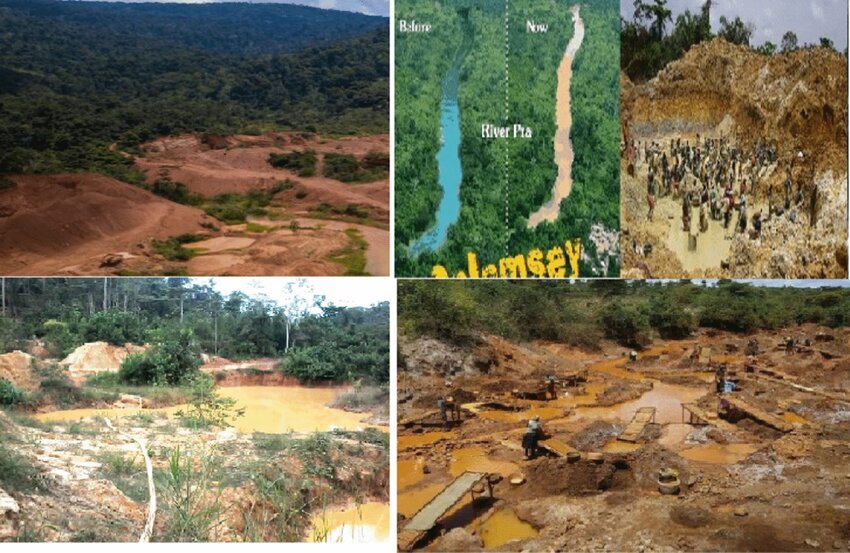The University of Ghana’s (UG) 2024 Day of Scientific Renaissance of Africa (DSRA) celebration culminated in an urgent call for decisive action to address the escalating galamsey menace.
The illegal small-scale mining practice poses severe threats to the environment, public health, and food security, prompting experts and stakeholders to demand immediate and comprehensive interventions.
The month-long celebration, held across the university’s various Colleges, Schools, and Departments, provided a platform to deliberate on scientific innovations and scholarly contributions.
This year’s theme, “Galamsey: Preserving the Environment, Protecting Our Future,” brought together a diverse group of experts and stakeholders at the Cedi Conference Centre to tackle the challenges posed by galamsey and propose actionable solutions.
In her keynote address, Prof. Benedicta Yayra Fosu-Mensah, an Associate Professor in Environmental Assessment and an Ecology and Natural Resources Management scientist at the Institute for Environment and Sanitation Studies, shared the profound environmental cost of galamsey.
Deforestation resulting from galamsey exacerbates climate change, manifesting as frequent and severe weather events, unpredictable rainfall patterns, and rising temperatures
Prof. Fosu-Mensah
Prof. Fosu-Mensah underscored the necessity of awareness creation, highlighting that the environmental costs far outweigh any economic benefits derived from illegal mining.
Adding to the discourse, Prof. Benedict N. L. Calys-Tagoe from the Department of Community Health at the University of Ghana Medical School and a Fellow of the Ghana College of Physicians and Surgeons, highlighted the public health dangers posed by galamsey.
“Unborn generations are not spared, as they are born with deformities linked directly to the effects of unchecked galamsey,” he warned. He called for higher educational institutions and the Environmental Protection Agency (EPA) to develop mercury-free, high-yield mining solutions to mitigate these health risks.
Prof. Richmond Aryeetey, a Public Health Nutrition Specialist and Head of the Population, Family, and Reproductive Health Department at the University of Ghana, brought attention to the often-overlooked issue of food security.
Galamsey has significantly impacted food production and food systems, putting livelihoods at risk
Prof. Aryeetey
Prof. Aryeetey detailed the need to prioritize addressing the hidden issues that extend beyond the immediate environmental and health impacts.
Vice-Chancellor of the University of Ghana, Prof. Nana Aba Appiah Amfo, in her address at the event, underscored the urgency of the situation, stating, “Galamsey poses a significant threat to our ecosystems, public health, and food security. It is imperative that we, as a community and nation, take decisive action to stop this destructive practice.”
She also highlighted the university’s role in addressing national challenges through research and innovation, pointing to the scholarly works and innovative technologies showcased during the event as evidence of UG’s commitment to finding sustainable solutions.
The event’s panelists, including Prof. Chris Gordon of the Institute of Environment and Sanitation Studies (IESS) and investigative journalist Erastus Asare Donkor, elaborated on the complexities of the galamsey issue. They discussed its environmental impact, such as water pollution and deforestation, and its health implications, including increased respiratory and skin diseases in affected communities.
The panelists called for a multi-faceted approach to tackle the problem, involving strict enforcement of mining regulations, community education, and alternative livelihood programs for those involved in illegal mining.
The urgent call to combat galamsey aligns with efforts to preserve the environment and protect public health and food security. However, speakers pointed out that it requires active political will, local authority intervention, community resolve, and intensive youth-led campaigns.

